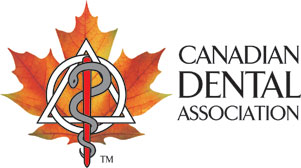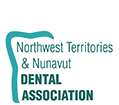March 28, 2023 – Ottawa, ON: Today, the Honourable Chrystia Freeland, Deputy Prime Minister and Minister of Finance, released Budget 2023, A Made-in-Canada Plan: Strong Middle Class, Affordable Economy, Healthy Future, in the House of Commons. The Canadian Dental Association (CDA) welcomes today’s announcement of additional funding of $13.0 billion over five years, starting in 2023-24, and $4.4 billion ongoing to Health Canada to implement the Canadian Dental Care Plan (CDCP).
“We applaud the federal government’s continued commitment to improve the oral health of Canadians and increase access to dental care for those who need it most with this historic investment,” says Dr. Lynn Tomkins, CDA president. “CDA has long advocated for targeted investments to improve access to oral health care. This additional funding reflects the recommendations found in our most recent policy paper and promises to yield even more long-term gains in oral and overall health.”
CDA’s recommendations in its February 2023 policy paper are meant to serve as a roadmap for the federal government as it seeks to enhance access to dental care for all Canadians and will guide CDA’s advocacy efforts for 2023.
Budget 2023 also proposes to provide $250 million over three years, starting in 2025-26, and $75 million ongoing to Health Canada to establish an Oral Health Access Fund, which will complement the CDCP by investing in targeted measures to address oral health gaps among vulnerable populations and reduce barriers to accessing care, including in rural and remote communities. Furthermore, another $23.1 million is proposed over two years, starting in 2023-24, to Statistics Canada to collect data on oral health and access to dental care in Canada, which will inform the rollout of the CDCP. Of these combined investments, $6 billion over four years, starting in 2024-25, and $1.7 billion ongoing would be sourced from the existing dental care funding provided through Budget 2022.
“Dentists see firsthand the impact that poor oral health can have on a person's overall health and are thankful for the opportunity to provide valuable expertise,” adds Dr. Tomkins. “CDA welcomes this announcement and looks forward to continued collaboration with Health Minister Jean-Yves Duclos, and his federal colleagues, to develop an approach that will narrow the gaps in access to dental care, while minimizing disruptions for the majority of Canadians who already have dental coverage.”
About the Canadian Dental Association
Founded in 1902, the Canadian Dental Association (CDA) is an association that has no regulatory role. It is a federally incorporated not-for-profit organization whose corporate members are Canada’s provincial and territorial dental associations (PTDAs). CDA represents over 21,000 practising dentists nationwide and is a trusted brand and source of information for and about the dental profession on national and international issues.
Quick Facts:
- Dentists and dental offices: There are approximately 25,500 licensed dentists in Canada, operating out of roughly 16,000 dental offices in Canada. That works out to about 65 dentists for every 100,000 Canadians. This ratio has approximately doubled since the 1960s.
- Dental benefits: More than two-thirds (67%) of Canadians report having dental benefits that cover all or part of their dental treatments; roughly 50% of Canadians have employer-provided dental benefits.
- Visiting the dentist: Canadians with health benefits are more likely to visit a dentist (82%) than those without (60%). Regardless of coverage, Canadians with lower household income were less likely to go to a dentist than those in higher income households.
- Dental utilization: Approximately 75% of Canadians saw a dental professional on an annual basis in 2018, one of the highest rates globally among comparable countries.
- Dental expenditures in Canada: In 2019, a total of $16.4 billion was spent on dental care in Canada, with roughly 94% coming from the private sector. This works out to $437 per capita. Overall, this accounts for 6.4% of Canada’s overall health care expenses.
- Public dental care programs: Although public dental care programs exist across Canada, they vary from province to province, and are exclusively funded by provincial and territorial governments. The federal government’s support for dental care is limited to the Non-Insured Health Benefits (NIHB) program for eligible First Nations and Inuit people, as well as some support for hospital-based, surgical-dental services through the Canada Health Transfer.
Media Contact:
Zelda Burt
Head of Communications
Canadian Dental Association
613-523-7963
media@cda-adc.ca











